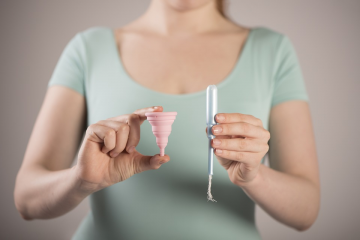How does the density of gases compared to that of liquids and solids?
How does the density of gases compared to that of liquids and solids?
A gas and a liquid will change shape to fit the shape of their container. A gas will change volume to fit the volume of the container. In general, solids are denser than liquids, which are denser than gases. . The particles in a liquid usually are still touching but there are some spaces between them.
Do solids and liquids have higher densities than gases?
Density: The molecules of a liquid are packed relatively close together. Consequently, liquids are much denser than gases. Because of their higher kinetic energy compared to the molecules in a solid, however, the molecules in a liquid move rapidly with respect to one another.
What is more dense gas liquid or solid?
In general, when considering the states of matter, solids are more dense than liquids and liquids are more dense than gases. Water is a bit of a contrarian in this regard. When water is in its solid state (ice), the water molecules are packed close together preventing it from changing shape.
Is the density of a gas greater than a liquid?
The same mass of gas will have very much greater volume than the liquid, and so will have much lower density.
Do liquids have density?
All liquids have a specific density. Density is a physical property of a substance in which scientists use as a method for identification. Density is also the relationship between an objects (or liquid) volume and its mass; scientifically it is the mass per unit volume.
What are the similarities and differences between solids liquids and gases?
solid: Has a definite shape and volume. liquid: Has a definite volume, but take the shape of the container. gas: Has no definite shape or volume. change of state: When matter is converted from one of the three states (example: solid, liquid, or gas) to another state.
Do liquids have high density?
Density is defined as the amount of weight an object (or liquid) has, given its size. All liquids have a specific density. A liquid with a lot of mass can have a low density and liquid with little mass can have a high density.
Which has more density liquid or solid or gas?
Therefore, liquids have less density than solids. Now coming on gaseous state of matter, the particles of gases are very far from each other and have negligible force of attraction between them.so the particles of gases have much tendency to move and occupy even larger volume than liquids and solids.
Which solid has highest density?
The first chemical element with the lowest density is Hydrogen and the highest density is Osmium.
Does all matter have density?
Density also depends on the material. A piece of iron with the same dimensions as a piece of aluminium will be heavier because the atoms are more closely packed and each iron atom has much more mass than each aluminium atom….Solids, liquids and gases.
| Material | Density in grams per cubic centimetre (g/cm 3) |
|---|---|
| Air | 0.00129 |
Which liquid has highest density?
mercury
So in that the liquid which has the highest density is mercury. It is the only metal which exists as liquid in room temperature other metals are hard and rigid and exist in solid phase. It has a density of about 13.546 grams per cubic centimeter.
Which is more dense a gas or a liquid?
Liquids generally have high densities. Gases generally have very low densities. Mixtures containing substances with different densities will form vertical layers, where: The least dense substance will lie at the top.
Why are solids and liquids have high densities?
We saw that solids and liquids have high densities because their particles are packed closely together, whereas gases have low densities because their particles are very far apart. In this lesson we will look at how density is measured, and how substances with different densities interact.
Which is more dense pure water or solid?
Pure water has a density of 1 g/cm3. Therefore, any substance with a density less than 1g/cm3 will float in water and any substance with a density greater than 1g/cm3 will sink in water. Most frozen solids will sink in a liquid of the same substance as substances are usually more dense as solids than liquids.
What are the densities of the most common substances?
Densities of Common Substances Material Density (g/cm 3) State of Matter ice 0.920 solid water at 20°C 0.998 liquid water at 4°C 1.000 liquid seawater 1.03 liquid


